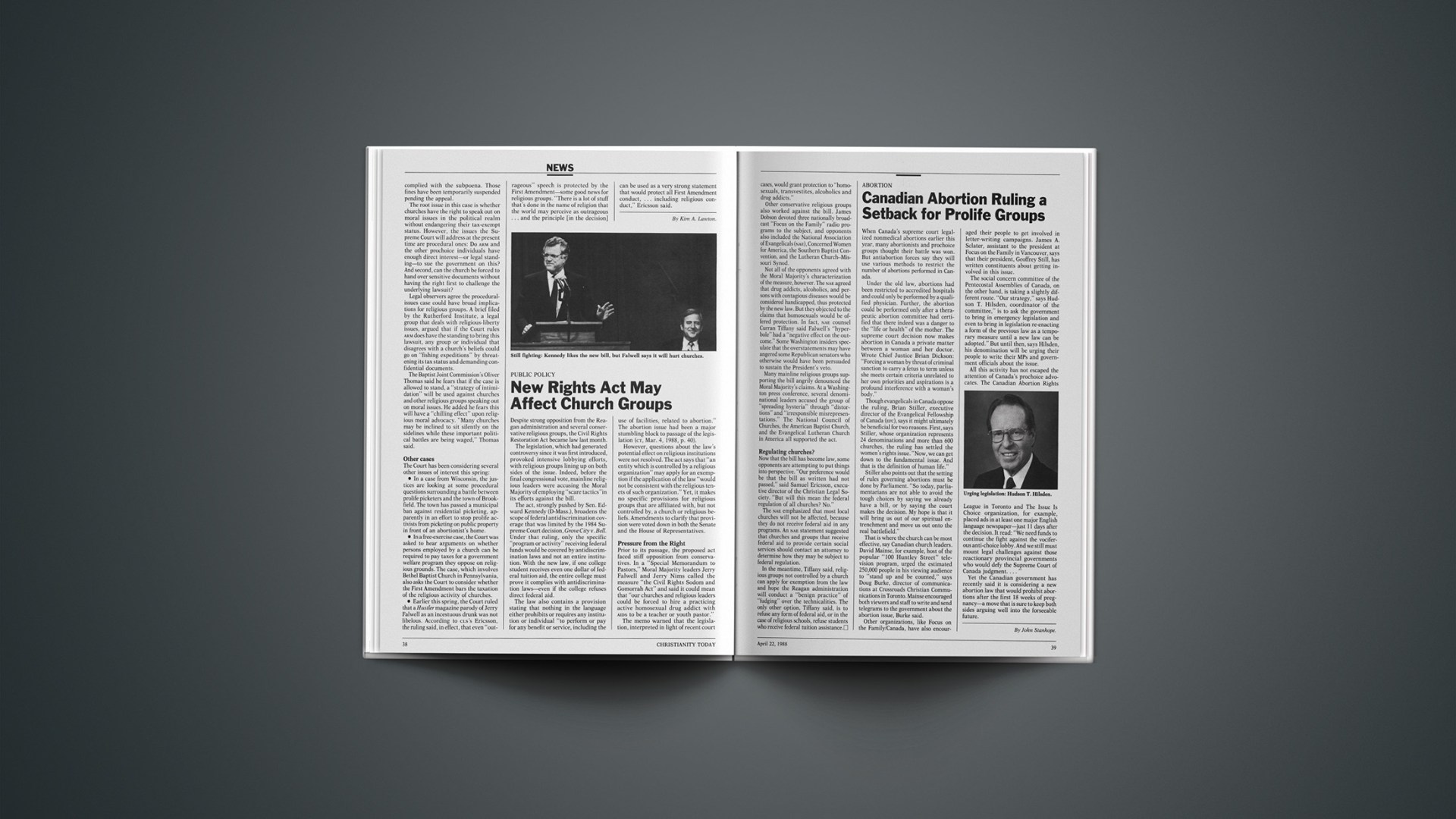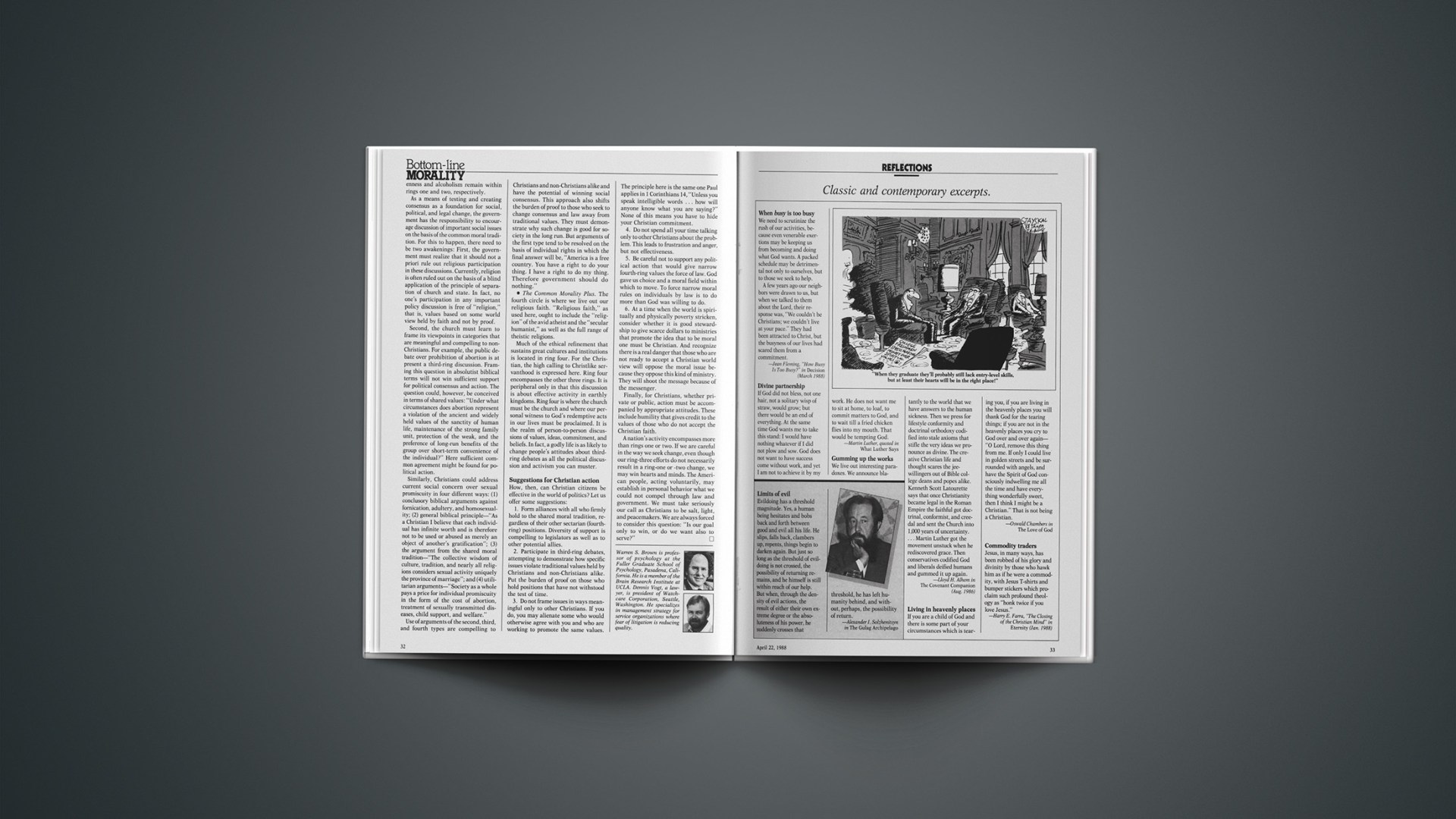PORNOGRAPHY
When the Religious Alliance Against Pornography (RAAP) sponsored its first convention two years ago, the agenda included a viewing of pornography. At this year’s convention, no such pictures were shown, and that, according to many observers, is significant.
“We are maturing as an organization,” said Paul Maurer, a spokesman for RAAP. “We have learned there’s a fine line between educating people about pornography and offending them.” Maurer also explained that the antipornography movement fully understands the dangers of exposing people to pornography. “There is a perverse attraction to it, even for those who oppose it,” said Maurer.
It is that attraction that RAAP is seeking to counter by eliminating obscene materials from the marketplace. “We are against censorship, but we are also against obscenity which is not protected by the Constitution,” said Joseph Cardinal Bernardin, vice-chairman of RAAP, and Roman Catholic archbishop of Chicago. Bernardin described pornography as “morally evil because it undermines human dignity.”
Currently, more than 40 denominations or religious organizations representing 100 million members belong to RAAP. Chairman Jerry R. Kirk, who is also president of the National Coalition Against Pornography, said the organization is trying to mobilize its members to join the fight through their own religious groups. “We would like every denomination to appoint a person in their national office to work specifically against pornography,” he said.
Kirk believes the war is winnable, pointing to a recent increase in child pornography and obscenity convictions. According to William Weld, assistant attorney general in charge of criminal prosecution, child pornography prosecutions jumped from only 3 in 1983 to 224 in 1987.
Yet others say the $7 to $10 billion industry continues to grow almost unchecked. “Only 40 of the 93 U.S. attorneys have any prosecutions,” said newspaper columnist Michael McManus, who has researched the problem extensively. “The fact is, we are winning a few battles, but the pornoggraphers are winning the war.”
Part of the problem in fighting pornography is the addictive nature of the material, according to Victor Cline, professor of psychology at the University of Utah. Cline, who has done extensive research on the harms of pornography, said it is extremely difficult for a person to stop a pornography habit. “Most people relapse after therapy,” Cline said. “The best therapy is an ongoing program similar to Alcoholics Anonymous.”
Cline’s research has established a correlation between pornography and sexually deviant behavior. “We have found that addiction is followed by a desensitizing effect, then an escalation of desire, and finally, the acting out of what one views or reads in pornography.” He called television evangelist Jimmy Swaggart’s much-publicized fall from grace a classic example of how pornography captivates its victims. And he said the program of rehabilitation initially proposed for Swaggart “won’t work unless he gets more sophisticated therapy.”
In addition to enlisting the support of denominations, RAAP officials say they would like to see Congress pass the Child Pornography and Obscenity Enforcement Act that is before them. “This bill would close current loopholes that allow pornographers to operate, and it would update obscenity laws to cover new technologies,” said RAAP’S Maurer.
For example, he said, pedophiles use computers to transmit child pornography over telephone lines, and this is not illegal under the current laws. Maurer also said it is not illegal for parents to receive payment for allowing their children to be used in pornography, and that the proposed legislation would change that.
“Currently, the bill has good support in both the House and Senate, but the respective committees have not called for hearings on them,” said Maurer. “Our fear is that this important bill will not be decided until the next session of Congress.”
By Lyn Cryderman in Washington D.C.











